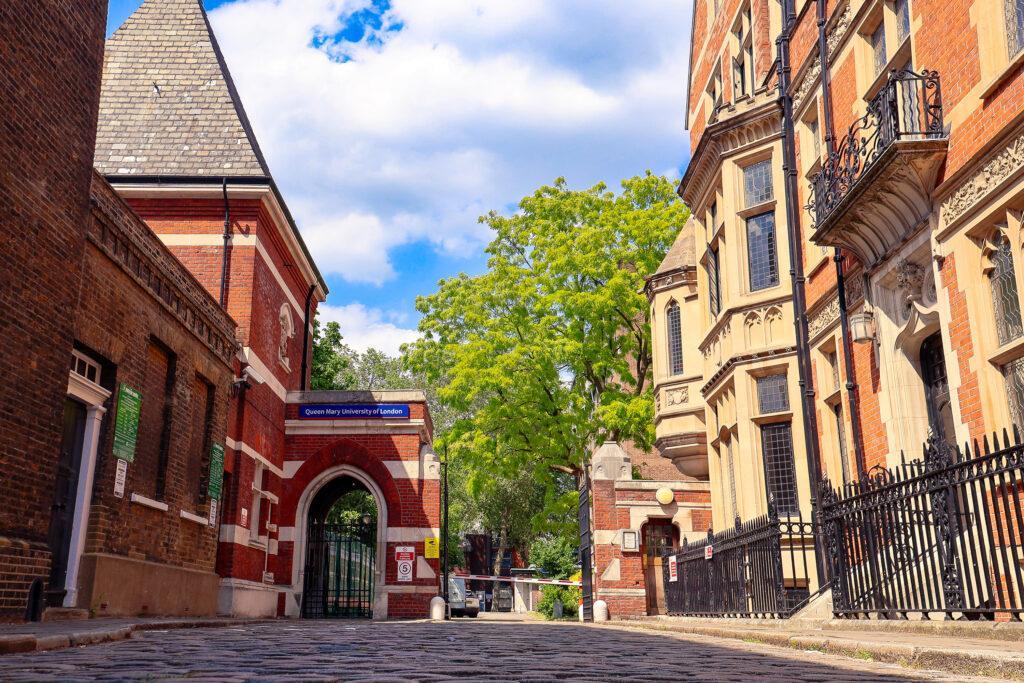Introducing: Professor Nitzan Rosenfeld
We are pleased to welcome Professor Nitzan Rosenfeld as the new Director of the Barts Cancer Institute at Queen Mary University of London. We spoke to Professor Rosenfeld to hear more about his journey leading him to the Barts Cancer Institute. Here, he reflects on how he has traversed the worlds of academia and industry over the years, and how a cancer diagnosis in his own family changed the trajectory of his career.
My father was a theoretical physicist, and I have always looked at the world through a scientific lens. I followed in his footsteps and studied Physics at the Technion. However, I reached a point where physics no longer provided answers to questions I was curious about. I wanted to better understand the world we live in – not only the rules that govern inanimate matter but also what makes the living world tick. I read books about popular science and philosophy of science by authors such as Richard Dawkins, Charles Darwin and others, and became interested in applying an analytical and quantitative approach to subjects such as evolution and molecular biology. I was intrigued by a fundamental question that to physicists can seem very baffling: “What is Life?” (which is also the name of an influential book written in the mid-1900s by physicist Erwin Schrödinger).
I decided to pursue graduate studies in biological sciences at the Weizmann Institute of Science, which eventually became a PhD in Systems Biology. Starting my project, I immersed myself in Biology by reading the famous Molecular Biology of the Cell textbook by Bruce Alberts. For a few months I had before starting graduate studies I did little else but eat, sleep and read the textbook!
![NRosenfeld 2019-11c[16] Professor Nitzan Rosenfeld, Director of the Barts Cancer Institute](https://www.bci.qmul.ac.uk/wp-content/uploads/2023/09/NRosenfeld-2019-11c16-1024x1024.png)
In my PhD thesis I used computational approaches to pose fundamental biological questions: how does a cell see the world? What does a cell sense? And how does it ‘think’ to process that information? To investigate, I built model systems using fluorescent proteins that enabled me to measure dynamic patterns of gene regulation in individual living cells.
"This was my first interaction with cancer – sitting with my father on the opposite side of the desk from the oncologist."
During my time as a PhD student, my father was diagnosed with lung cancer and after a year he passed away. I was just about to publish my first papers when he died, and I missed the opportunity to celebrate that important milestone with him. I dedicated the papers from my PhD to his memory.
Like many others, this was my first interaction with cancer – sitting with my father on the opposite side of the desk from the oncologist. I saw first-hand the gap between the powerful molecular tools we have in the research labs and the limited information that clinicians have access to when they treat cancer patients. I decided to focus on applied work that would make a difference to people with cancer. After nearly six enjoyable and productive years as a graduate student, I also felt a need to get experience outside of academia.
I decided to join a startup biotech company, Rosetta Genomics Ltd, working on tests that measure microRNA to help diagnose cancer more accurately. There, I gained experience in managing a team, receiving valuable mentoring and training in management that is sadly not always easily available in academia. Inspired by the work of Professor Dennis Lo on non-invasive prenatal tests, I became fascinated by the possible implications of research into circulating nucleic acids, specifically cell-free DNA in blood plasma. The idea of being able to study and measure genomic features of cancer through a non-invasive liquid biopsy sounded like science fiction at the time. After nearly 10 years developing my scientific and leadership skills, I felt I knew just enough about the science behind this and about how to run a research project to try to make it work. I concluded that to do so, I needed to leave industry and return to academia, and I began applying for research positions.
"The idea of being able to study and measure genomic features of cancer through a non-invasive liquid biopsy sounded like science fiction at the time."
After about a year of efforts and several rejections, I finally had an offer for a group leader position, at the Cancer Research UK Cambridge Institute! I hadn’t previously interacted with Cancer Research UK, but while searching for my next steps I learned about their incredible work, which makes the UK a great place for translational research in cancer: exactly what I had wanted to do.
I moved with my family to Cambridge, and built a multidisciplinary team combining computational and wet-lab expertise, setting up close collaborations with multiple clinical teams. I devoted the research efforts of my growing group entirely to researching cell-free DNA, which at the time was seen as a risky move and was criticised by some of my colleagues for its applied focus. I’m proud of our determination to pursue this area that we believed held huge potential. Over the coming years, we developed a range of tools for measuring tumour mutations and other DNA features in the blood.

I was focused on how we can harness our findings to help patients. And so, when we had developed methods that I felt could provide information that clinicians could use, I began to speak to colleagues about how I could raise investment to start a spin-out company. It took about two years of trial and error to gain experience and to bring together a team, a plan and a set of investors that would support the idea we wanted to pursue. In 2014 we founded Inivata and secured a £4m seed investment. The company name was a play on the words ‘Ani v'Ata’, a cultural reference to a popular song whose lyrics translate to ‘you and I will change the world’.
Inivata was one of the first companies to offer clinical blood tests to detect and characterise circulating cell-free DNA, providing personalised information about a person’s disease to improve treatment decisions. Over the next few years, I pursued academic research in the lab while also supporting the growth of Inivata as its Chief Scientific Officer. As the company focus matured from R&D to commercialisation, my role in it also changed. In 2021, Inivata was acquired by NeoGenomics, a US corporation that specialises in oncology testing, for a total investment of $415m. My focus returned to academic research and to future applications of new technologies we are developing. In parallel, I started to wonder where my career would take me next.
"I am proud to be part of Queen Mary University of London, which supports people of all backgrounds who wish to fulfil their potential through higher education and research"
When I heard that Queen Mary University’s Barts Cancer Institute was recruiting a new Director, I was keen to throw my hat into the ring. The Barts Cancer Institute has an impressive track record and portfolio of research, and I feel a strong connection with its dedication to translating research into tangible benefits for people with or at risk of cancer. I am proud to be part of Queen Mary University of London, which supports people of all backgrounds who wish to fulfil their potential through higher education and research. It’s an honour and a privilege to have the opportunity to play a part in the institute’s future growth, building on 20 years of extraordinary leadership by Professor Nick Lemoine. I look forward to working within this exceptional community, to pursue with my colleagues the institute’s mission of transforming cutting-edge cancer research into tangible clinical impact.

Category: General News, Interviews

No comments yet